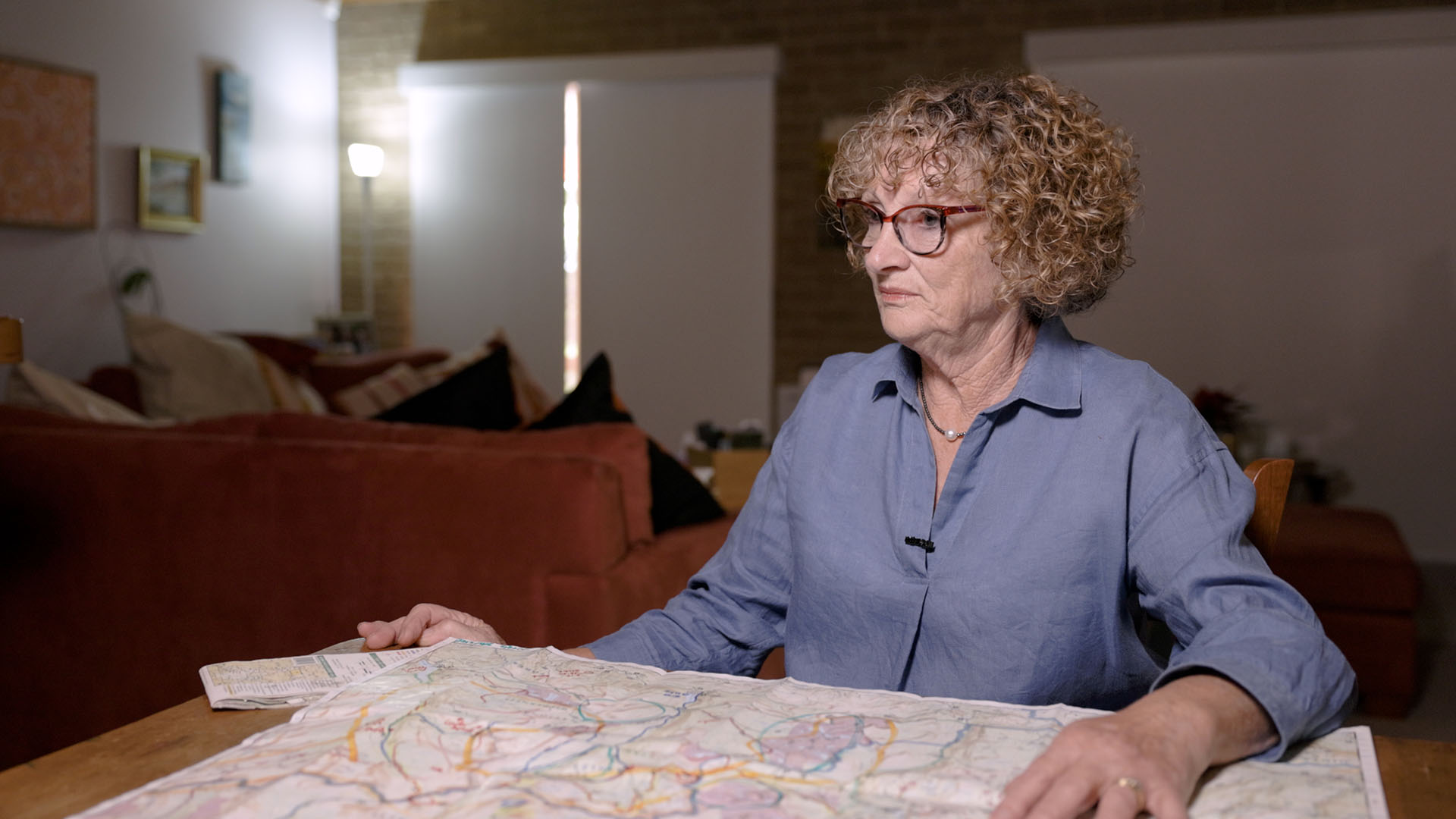
Marilyn Koolstra, the wife of missing Australian trekker Eric Robinson, traveled halfway around the world in the hopes of joining the search for her husband. On her second day in Utah, she struggled to simply get in contact with the sheriff in charge of the effort.
“We started calling on Friday, asking to speak,” Marilyn said.
She expected to be connected to the people who were tasked with with finding Eric, thinking they’d be eager to hear from her.
“That was my expectation,” Marilyn said. “That was how we operated in Australia. The family, or the closest relatives, were in direct and regular communication with the headquarters of the search.”
So it came as a shock when the person who answered the phone at the Duchesne County Sheriff’s Office told Marilyn no one was available to speak with her, as they were all out in the field taking part in the search.
“They clearly had no news to share,” Marilyn said. “It was a little frustrating, but the whole scenario of him being missing was frustrating because how dare he?”
Marilyn Koolstra visits the Highline Trailhead
It was Friday, August 12, 2011. The search for Eric was in its 5th day. Marilyn, her daughter Rachel Marsden and Eric’s hiking friend Devon McClive were staying at a home in Park City, about an hour-and-a-half drive from the search headquarters in Duchesne.
In the absence of a call from the sheriff, Marilyn decided the best use of time would be to post missing persons fliers at campgrounds and trailheads near where Eric’d planned to finish his hike.
Devon drove Marilyn and Rachel up the Mirror Lake Highway, to the Highline Trailhead just below Hayden Peak. They walked a short distance out on the trail, to a rocky outcropping that overlooked a forested expanse at the headwaters of the Duchesne River. It comprised just a small portion of the Uinta range, which Eric’d planned to hike across.
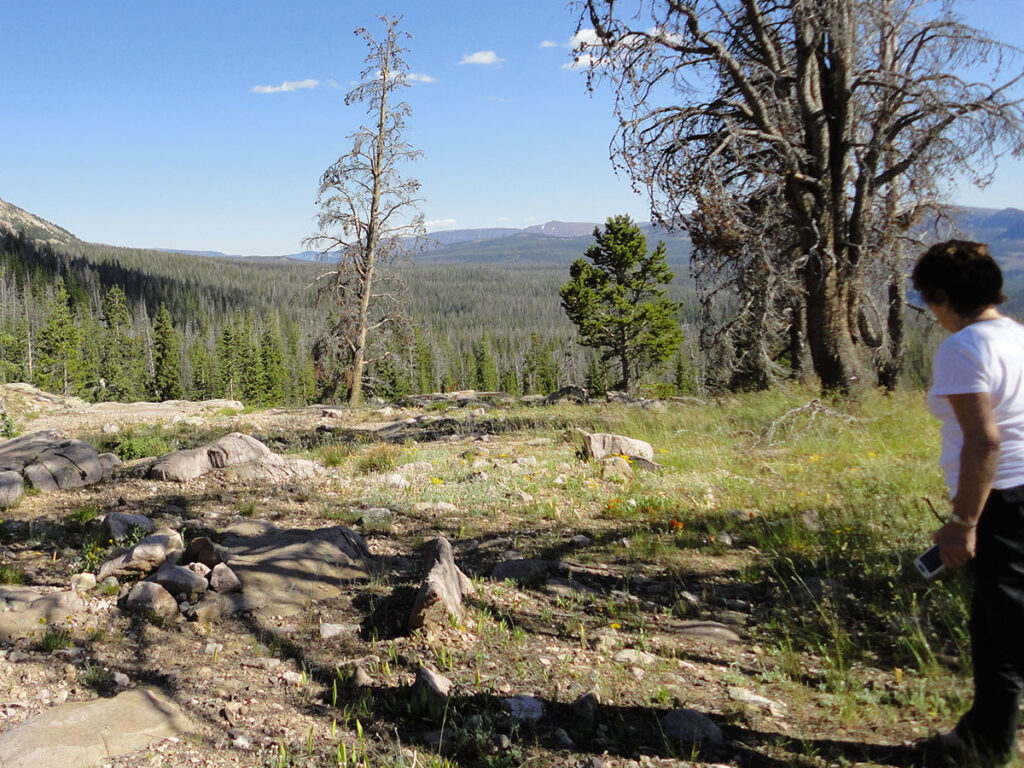
Rachel felt awed by the scale of the mountain landscape.
“I remember thinking, ‘Eric, what were you thinking mate,’” Rachel said. “Once I could visualize it, I then was starting to probably prepare myself for any number of realities.”
Up to that point, Rachel’d held onto hope that Eric was alive but perhaps lost or incapacitated. Each passing day without any sign of him made it less likely he would turn up, overdue and apologetic for causing a ruckus.
Julia Geisler feels the clock ticking
Another of Eric’s hiking friends, Julia Geisler, was at that same time deep in the backcountry of the Uinta Mountains, assisting in the search. Julia and her partner Blake Summers were looking for any sign of Eric in the vicinity of Dead Horse Pass.
“We’ve never been a part of a search and rescue operation,” Julia said.
They suspected late-season snow that still draped portions of the Uinta Highline Trail at Dead Horse Pass might’ve been a hazard too difficult for Eric to overcome.
“At this point, he’s probably had an accident of some sort or he’s lost and he needs to be found, like he needs a rescue,” Julia said.
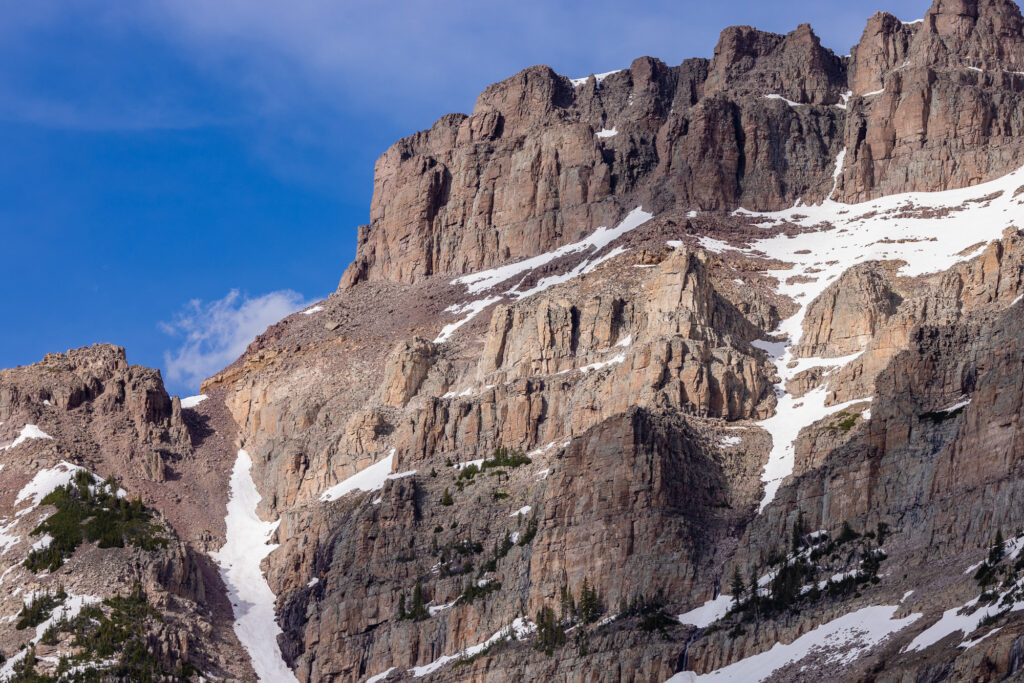
Trouble was, there hadn’t been any reported sightings of Eric since another hiker photographed him near Fox Lake on July 30. That sighting was almost two weeks prior, and roughly 60 miles of trail were between Fox Lake and the Mirror Lake Highway.
“We were feeling like we’ve got to just put in the long, long days on the trail to get out there and search as much as we possibly can,” Julia said.
Marilyn had also done her part by granting an interview to KSL-TV shortly after arriving in Utah from Australia. Her comments were spreading online, and were published in the Deseret News the following morning, on Saturday, August 13, 2011.
A scoutmaster’s encounter with Eric Robinson
The newspaper article made an immediate impact. On that Saturday morning, a man named Russ Alston was washing his Chevy Suburban when he received a call from a neighbor, Jay.
“He said, ‘Hey, did you read the paper this morning,’” Russ said. “I said, ‘No.’ And he said, ‘Read the front page of the local.’”
Russ retrieved his copy of the Deseret News, flipped to the B section and saw an article with the headline “Hiker Missing in Utah’s High Uintas.” Below the headline, Russ saw a photo of Eric Robinson.
“I read the full article and it was essentially that Eric Robinson was overdue at the pickup point on the western extreme of the Highline Trail,” Russ said.
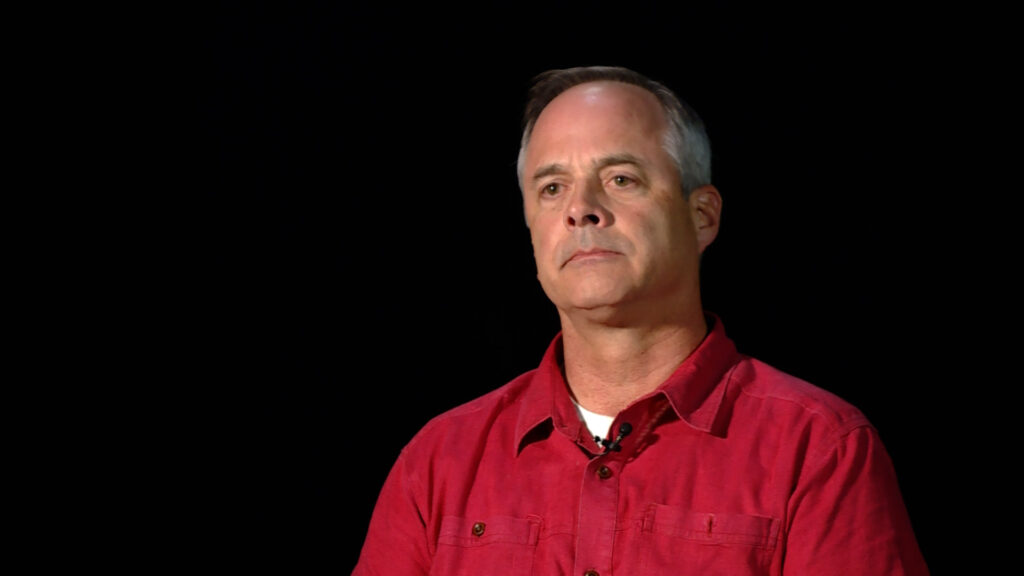
The article noted the last known sighting of Eric was at Fox Lake on July 30. Russ knew that was wrong. He’d seen Eric in the High Uintas Wilderness a few days later, on August 2. But Eric had not been on the Uinta Highline Trail at that time.
Russ’ encounter with Eric occurred about five miles south of the Highline, along a different trail that runs perpendicular to it. Russ, Jay and a third man were leading a trio of Boy Scouts up into the wilderness on a 50-mile trek.
“Kings Peak, the highest point in Utah, was the ultimate goal and we were going to take six days to carry out that plan,” Russ said.
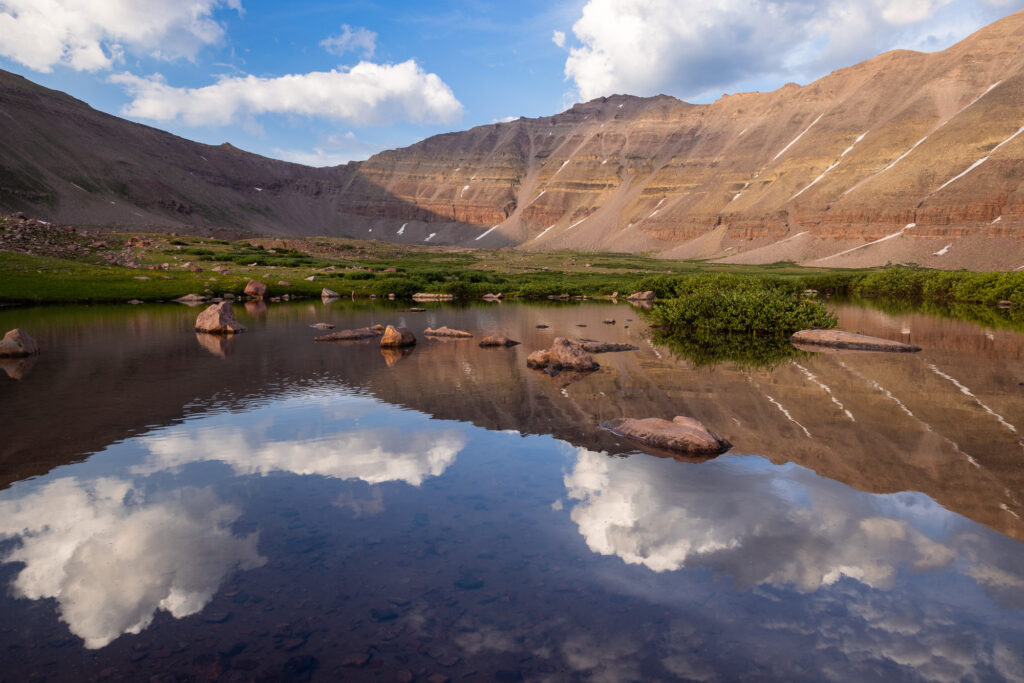
They were only on their second day, pausing for snacks and water shortly before noon, when a well-equipped solo hiker came down the trail traveling the opposite direction.
“We chat with this gentleman for 20 to 30 minutes about his experience and what we’re doing,” Russ said.
That gentleman was Eric Robinson, and he reportedly told the Boy Scout group that he’d lost the Uinta Highline Trail the previous day while crossing Anderson Pass. A high-angle snowdrift covered a portion of the trail, forcing Eric to divert down a steep, rock-strewn slope in an effort to avoid it.
“His complaints were that he couldn’t see markings, and then he described kind of hand-over-foot letting himself down the face of the rock,” Russ said. “He had a good attitude, but I would say complaining about the condition of the trail.”
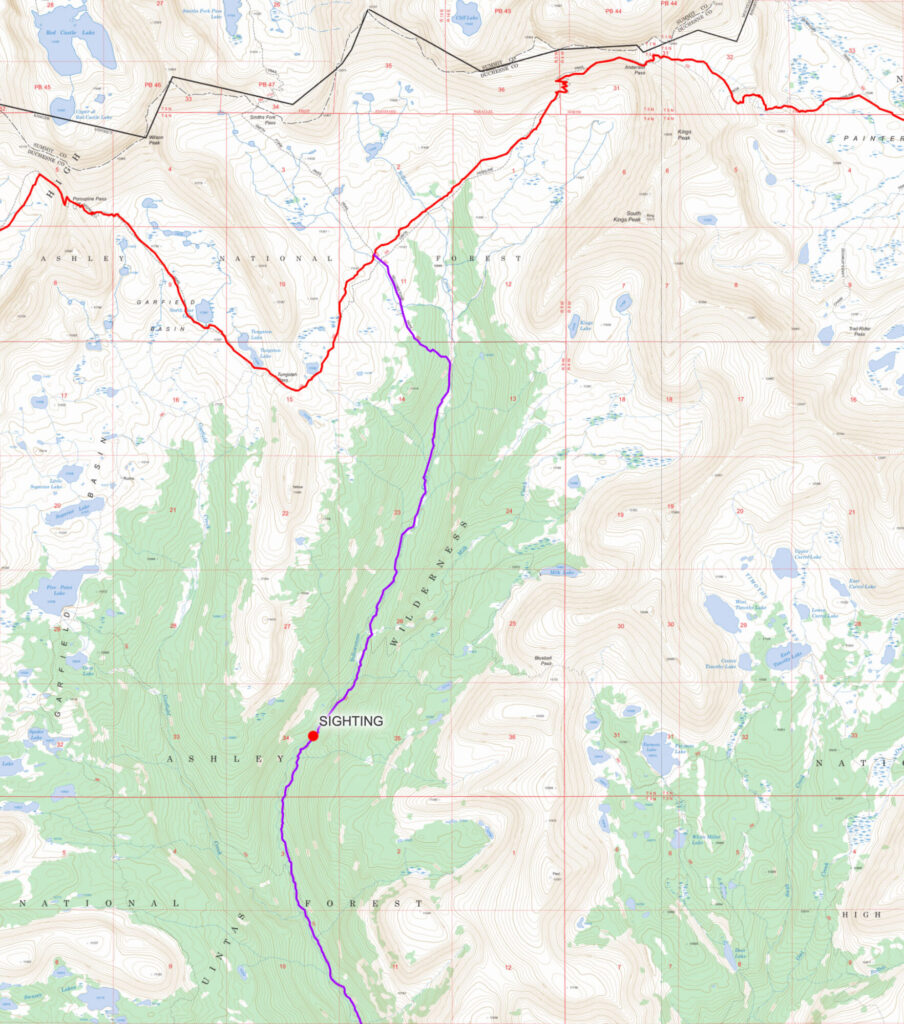
Russ couldn’t quite understand how Eric’d then veered so far off course, dropping far down into the canyon of Yellowstone Creek rather than relocating the Uinta Highline Trail below the pass and continuing on it westbound.
“Because he was headed south now and we were headed north up into that basin,” Russ said. “We got maps out and I kind of described some of those options he had to return to the Highline.”
Russ told Eric if he continued south, down canyon for a short distance, he’d find a trail that split off going north and west. It would take Eric up through the Garfield Basin and eventually return him to the Uinta Highline Trail. Eric reportedly told Russ that’s what he would do, then headed off down the canyon.
Was Eric Robinson lost?
Russ Alston reported this information to the Duchesne County Sheriff’s Office, which notified Eric’s wife Marilyn Koolstra of the new information late in the day on Saturday, August 14.
“It was hopeful in some ways, but in other ways it was, ‘Well, if he’s off the trail, what now? Where do you search,’” Marilyn said. “I had no understanding of that, it was not my territory.”
The sheriff’s office informed Marilyn it would be sending searchers on horseback into the Garfield Basin in search of Eric, starting the next morning.
“So there was renewed home of some conclusion,” Marilyn said.
At the same time, Rachel felt a sinking feeling over knowing Eric had deviated from the Uinta Highline trail.
“There was the question of, ‘He was a little off the trail. He was a little bit lost. Did he actually know what he was doing? Was he a little disoriented,’” Rachel said. “In the absence of information, all these other questions would arise.”
Rachel drafted an email to send to friends and family of Eric back home in Australia. In the message, she noted the sighting of Eric by the Boy Scouts along Yellowstone Creek and said the date and time proved Eric’d been progressing “slower than he or others had anticipated.”
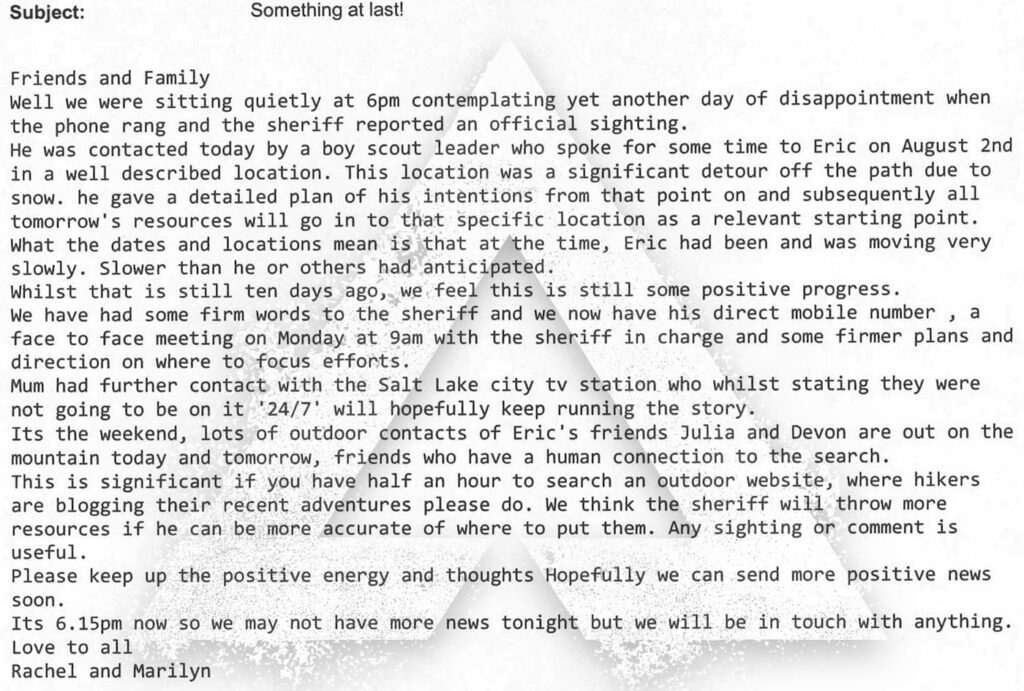
Although Rachel’s message carried a hopeful tone, she privately harbored a worsening fear that Eric might no longer be alive.
“Too much time’s passed,” Rachel said. “Something untoward’s happened. But what’s that untoward, and are we actually going to figure that out?”